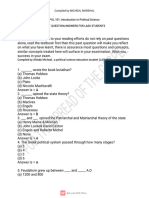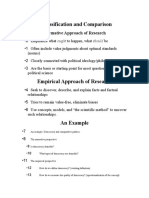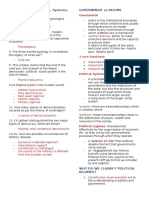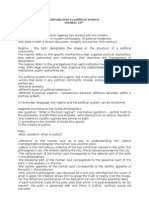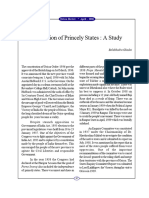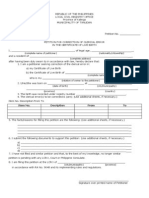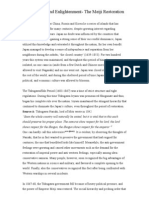0% found this document useful (0 votes)
8 views5 pagesChapter 5 Formatted
The document consists of a series of questions and multiple-choice answers related to political systems, theories, and classifications. It covers topics such as political regimes, democracy types, historical political theorists, and concepts like utopianism and authoritarianism. The questions are designed to test knowledge on various political concepts and historical developments.
Uploaded by
singhunikeCopyright
© © All Rights Reserved
We take content rights seriously. If you suspect this is your content, claim it here.
Available Formats
Download as DOCX, PDF, TXT or read online on Scribd
0% found this document useful (0 votes)
8 views5 pagesChapter 5 Formatted
The document consists of a series of questions and multiple-choice answers related to political systems, theories, and classifications. It covers topics such as political regimes, democracy types, historical political theorists, and concepts like utopianism and authoritarianism. The questions are designed to test knowledge on various political concepts and historical developments.
Uploaded by
singhunikeCopyright
© © All Rights Reserved
We take content rights seriously. If you suspect this is your content, claim it here.
Available Formats
Download as DOCX, PDF, TXT or read online on Scribd
/ 5

